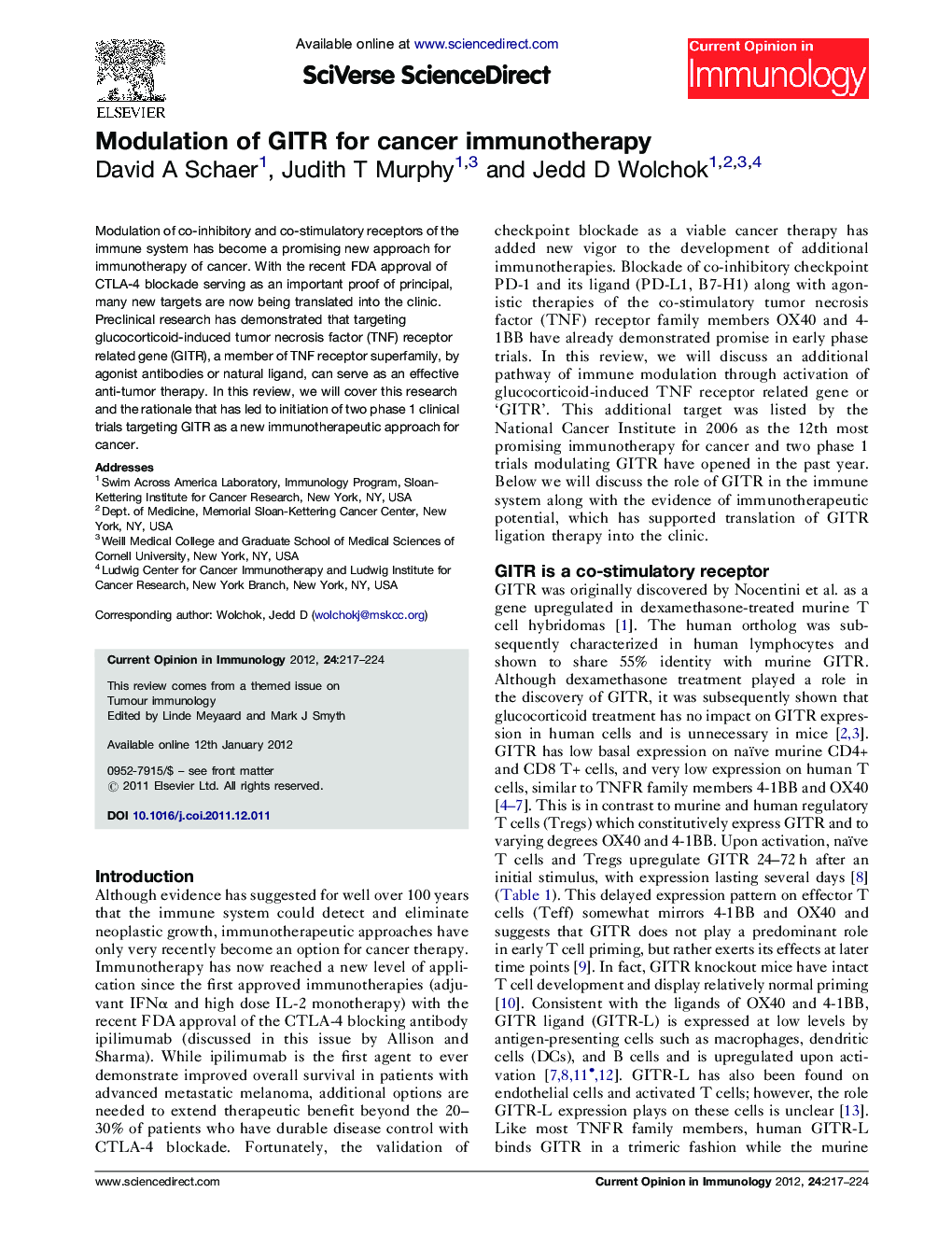| Article ID | Journal | Published Year | Pages | File Type |
|---|---|---|---|---|
| 3346171 | Current Opinion in Immunology | 2012 | 8 Pages |
Modulation of co-inhibitory and co-stimulatory receptors of the immune system has become a promising new approach for immunotherapy of cancer. With the recent FDA approval of CTLA-4 blockade serving as an important proof of principal, many new targets are now being translated into the clinic. Preclinical research has demonstrated that targeting glucocorticoid-induced tumor necrosis factor (TNF) receptor related gene (GITR), a member of TNF receptor superfamily, by agonist antibodies or natural ligand, can serve as an effective anti-tumor therapy. In this review, we will cover this research and the rationale that has led to initiation of two phase 1 clinical trials targeting GITR as a new immunotherapeutic approach for cancer.
► Engagement of GITR results in a co-stimulatory signal to CD4+ and CD8+ T cells. ► GITR may influence the type of T helper immune response elicited by a pathogen. ► A GITR agonist antibody is an effective anti-tumor therapy in mouse models. ► Anti-GITR therapy enhances effector T cell responses and may modulate Treg function. ► Clinical trials using GITR modulation to treat melanoma are underway.
